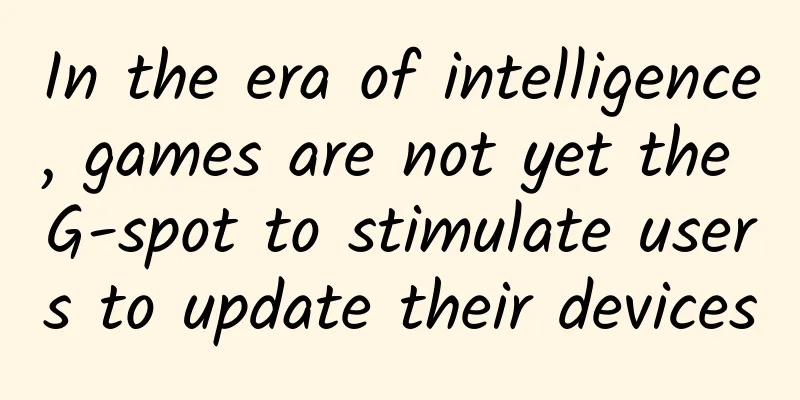The elderly love to take naps, that may not be due to sleepiness

|
Daytime napping in older adults is normal in the aging process, but it can also be a sign of Alzheimer's and other dementias. Once diagnosed with dementia or its common precursor, mild cognitive impairment, older adults rapidly increase the frequency and/or duration of naps, according to a new study. The study was conducted jointly by the University of California, San Francisco (UCSF), Harvard Medical School, and Brigham and Women's Hospital. Dementia may affect wakefulness-promoting neurons in a key area of the brain, the study suggests, contradicting the theory that older people take daytime naps simply to make up for lost sleep at night. The related research was published in Alzheimer's & Dementia on March 17. Copyright image, no permission to reprint "After adjusting for the quantity and quality of nighttime sleep, we found that the association between excessive daytime napping and dementia remained," said co-author Yue Leng of the UCSF Department of Psychiatry and Behavioral Sciences. For the study, researchers tracked data from 1,401 older adults who had been followed for 14 years by the Rush Memory and Aging Project at the Rush Alzheimer's Center in Chicago. The participants, whose average age was 81 and about three-quarters were women, wore a watch-like device that tracked their movements, with each long period of inactivity between 9 a.m. and 7 p.m. defined as a nap. Each participant wore the device continuously for 14 days per year and underwent annual neuropsychological testing to assess cognitive abilities. At the start of the study, 75.7% of the participants had no cognitive impairment, while 19.5% had mild cognitive impairment and 4.1% had Alzheimer's disease. For participants without cognitive impairment, daytime napping increased by an average of 11 minutes per year. After being diagnosed with mild cognitive impairment, that time rose to 24 minutes; after being diagnosed with Alzheimer's, that time rose to 68 minutes. Copyright image, no permission to reprint The researchers looked at 24 percent of the participants. They had normal cognitive abilities at the start of the study but developed Alzheimer's disease six years later. The researchers compared them with people whose cognitive abilities remained stable and found differences in their napping habits. Participants who napped for more than an hour a day had a 40% higher risk of developing Alzheimer's disease compared to those who napped less than an hour a day; participants who napped at least once a day had a 40% higher risk of developing Alzheimer's disease compared to those who napped less than once a day. This finding confirms the results of a 2019 study conducted by Leng, which showed that older adults who napped for two hours a day had a higher incidence of cognitive impairment than those who napped for less than 30 minutes a day. The researchers say a study by other UCSF researchers could explain the increase in napping. The study compared postmortem brains of people with Alzheimer's with those without cognitive impairment and found that people with Alzheimer's had fewer wakefulness-promoting neurons in three areas of the brain. These neuronal changes appeared to be linked to tau tangles — a hallmark of Alzheimer's disease characterized by increased activity of enzymes that cause proteins to misfold and clump. “I don’t think we have enough evidence to draw a causal conclusion that napping itself causes cognitive decline, but excessive napping during the day could be a sign of accelerated aging or cognitive decline.” "It would be very interesting to conduct future studies to explore whether napping interventions could help slow down age-related cognitive decline," Leng said. Source: China Science Daily Author: Wen Lele Related paper information: https://doi.org/10.1002/alz.12636 The watermarked images in this article are from the copyright gallery, and the image content is not authorized for reprinting |
>>: Why do my hands peel when the seasons change? It’s not just a lack of vitamins!
Recommend
In-depth|What does OpenAI really want?
【Editor's Note】At the end of last year, OpenA...
How much does it cost to make the Aral Logistics Mini Program? What is the quotation for the development of the Aral Logistics Mini Program?
How much does it cost to make the Aral Logistics ...
7 steps to completely dismantle live streaming sales
Live streaming sales are very popular. It's m...
SpaceX's first manned commercial space flight! Flying around the earth for 3 days, the ticket price may reach 200 million yuan
Is space travel for all people really going to be...
Do wild boars eat better or worse after they move into the city?
Wild boars were spotted on the streets of Nanjing...
"Laso" has made new discoveries! The world's first accurate observation of the entire afterglow of a once-in-a-millennium gamma-ray burst
Produced by: Science Popularization China Author:...
Jinhua takeaway mini program investment price inquiry, how much is the Jinhua takeaway mini program investment price?
How much is the investment cost for Jinhua takeaw...
Creating the future with data T11 2018 explores the development of new smart cities
With the further integration of technologies such...
There are so many promotion channels, how can we combine them to maximize traffic!
Currently, the total number of mobile app users h...
An Shihao appointed head of Volkswagen North American sales
According to foreign media reports, Volkswagen Gr...
How much does a mask production equipment cost? Can you make money by producing disposable masks?
The most popular item on the market recently is m...
Ancient beverages are also becoming trendy? When tea starts to become instant
With its convenience, versatility and applicabili...
Bidding price adjustment ideas, Baidu bidding price adjustment strategies and analysis!
When we are doing bidding promotion, we must make...
Netgear Nighthawk X4S router: The confidence to sell it for 2,000 yuan is indeed reasonable
Let me give you a spoiler first: how big is the p...
Mobile phone skin comparison: Samsung loves plastic, Xiaomi loves stainless steel
[[120685]] OnePlus Technology announced that the ...









